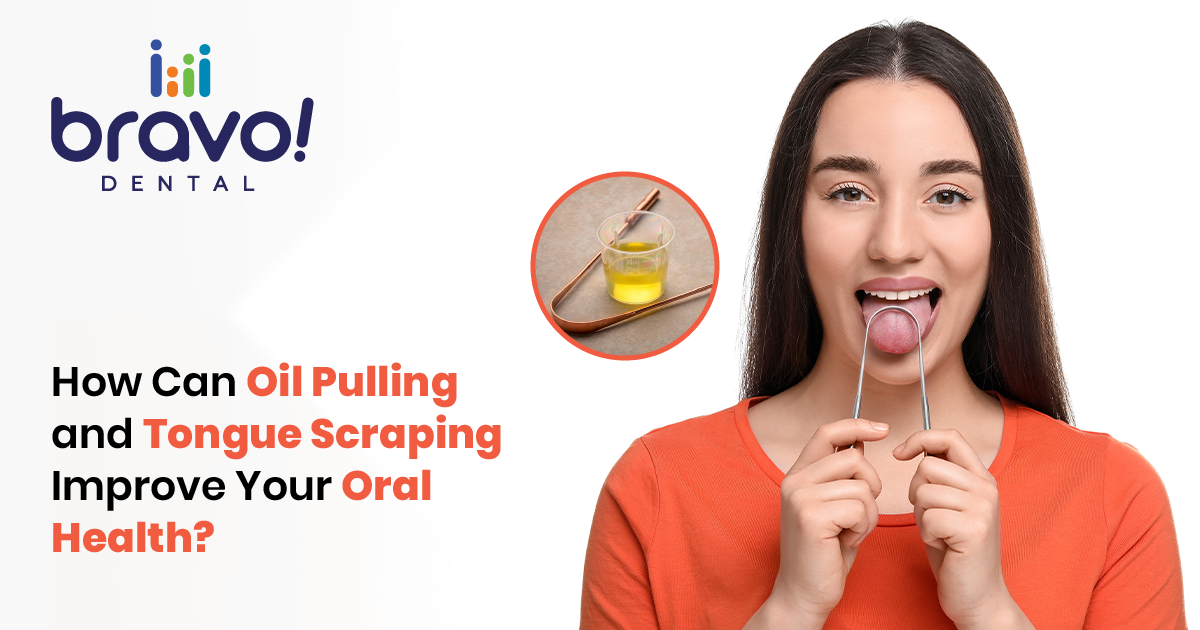
Maintaining oral hygiene is crucial for overall health. While brushing and flossing are well-known practices, oil pulling, and tongue scraping are also widely used. But are these methods truly effective?
What is Oil Pulling?
Oil pulling is an ancient Ayurvedic practice that involves swishing oil (typically coconut, sesame, or sunflower oil) in your mouth for about 15-20 minutes. This practice is believed to remove toxins and improve oral and overall health.
Benefits of Oil Pulling
Enhances Oral Hygiene
Research indicates that oil pulling can reduce the number of harmful bacteria in the mouth. A study from The Journal of Contemporary Dental Practice found that oil pulling with coconut oil significantly reduced Streptococcus mutans, a bacteria known for causing cavities.
Improves Gum Health
Regular practice can reduce inflammation and improve gum health. Oil pulling can help reduce the formation of bacteria, thereby reducing bad breath and gum-related problems. A study in the National Medical Library showed that oil pulling was very effective in reducing gum diseases (halitosis).
Prevents Cavities
The oil traps and removes harmful bacteria from the mouth, preventing cavities. Regular use can create an inhospitable environment for bacteria, promoting healthier teeth.
How to Practice Oil Pulling
1. Choose Your Oil: Coconut oil is popular for its pleasant taste and antibacterial properties.
2. Measure One Tablespoon: Swish this amount in your mouth.
3. Swish for 15-20 Minutes: Ensure you pull the oil through your teeth and around your mouth.
4. Spit and Rinse: Do not swallow the oil. Spit it out in a trash can to avoid clogging your sink and rinse your mouth with warm water.
What is Tongue Scraping?
Tongue scraping involves using a tool to remove bacteria, food debris, and dead cells from the tongue’s surface. This practice helps enhance oral hygiene.
Benefits of Tongue Scraping
Enhances Oral Hygiene
Tongue scraping removes bacteria directly from the tongue’s surface that brushing and flossing might miss. This can lead to a cleaner mouth and fresher breath.
Improves Taste Sensation
Clears the tongue of debris that can hinder taste buds. The taste buds are more exposed and can function more effectively, enhancing your ability to taste.
Promotes a Healthy Mouth
Regular tongue scraping can prevent bacteria and debris buildup, contributing to oral health. Additionally, it removes the coating on the tongue that often contributes to bad breath.
How to Practice Tongue Scraping
1. Choose a Scraper: Metal or plastic scrapers are widely available.
2. Scrape Gently: Start at the back of your tongue and gently scrape forward.
3. Rinse the Scraper: Rinse it after each scrape to remove the debris.
4. Repeat Daily: Incorporate tongue scraping into your daily routine to maintain good oral health.
Conclusion
Both oil pulling and tongue scraping offer valuable benefits for maintaining oral hygiene. While they should not replace traditional practices like brushing and flossing, they can be excellent additions to your oral care routine. For personalized advice, consult with our dental professionals at Bravo! Dental Clinic and enhance your oral hygiene practices today!
happy to hear from you, contact us
Fill out the contact form below and Feel free to send any question or query.




